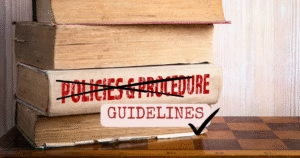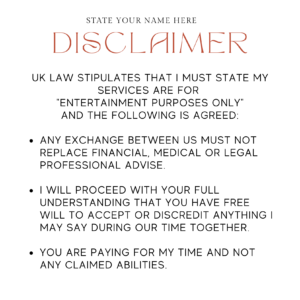Tarot Etiquette

I’ve never been one for rigid rules — tarot is a personal practice, after all. But when we’re reading for others, we’re holding space for their hopes, fears, memories, and emotions. That’s a big responsibility. So while I don’t believe in strict dos and don’ts, I do think a few thoughtful guidelines can make all the difference.
1. Learn the Cards First
Take your time. Spend as long as you need practising your recall. Know your cards before you even think about reading for others.
It’s a confidence thing — there’s nothing worse than needing to “look it up in the book” mid-reading. It knocks your confidence and breaks the flow. Better still, learn with a partner and practise together.
2. Look After Your Deck
Tarot cards aren’t toys — they’re powerful tools of divination. Treat them with respect.
Keep them away from strangers, wrap them when not in use, and store them somewhere energetically calm.
3. Create a Reading Space
Yes, I’ve whipped out cards at short notice — but having a calming reading space helps you shift into ‘reader mode.’ When you sit down with the deck, it knows what’s expected.
4. Cleanse Your Cards (If Needed)
I don’t cleanse mine often — they’re rarely touched by others. But after an emotionally charged reading, I shuffle to reset their energy.
Some readers use incense or crystals. I store mine with Amethyst — the ultimate chill pill crystal.
5. Choose Your Spreads and Know Them Well
Stick to a few spreads and master them. Mine are the three-card spread and the Celtic Cross. For Lenormand, I use a 9-card.
Knowing your spread inside out means you can focus on the message, not the method.
6. Provide Clarity — But Not Certainty
Be clear with yourself and the client: you’re not a mind reader. You interpret the cards and say what you see — but you’re not in charge of anyone’s destiny.
And neither are the cards. Everyone has free will.
7. Keep Secrets Sacred
Never repeat what’s said in a reading.
The only chant I allow is: “Secrets are sacred. Secrets are sacred.”
Other than that? Nothing leaves the table.
8. Break-Ups and Cheating Partners? No.
No, no, and no.
We don’t want disgruntled partners chasing us down for redemption. If someone asks, I simply say: “I’m afraid I won’t be able to see that in the cards.”
Deep down, they already know the answer.
My rule? If someone’s asking whether their partner is cheating, it’s not a good sign.
9. The Death Card Doesn’t Mean Death
Let’s clear this up. The Death card does not predict death.
It represents transformation, endings, and rebirth. If it shows up, I reframe it as a life shift — not a final one.
10. Relax the Client
Before I begin, I often say:
“Let’s consult the cards. I’ll shuffle and lay them down to see what I can see — is that okay with you?”
Always check in. Make sure they know they’re in control — not the cards.
11. Take Your Time with the Reading
Lay the cards. Look for themes. Sit in silence for a moment before speaking.
Clients often take notes or record the session. Your words will stay with them — so speak with care.
12. Understand How to Charge for Your Time
You’re being paid for your time, not your insights.
This matters. It sets healthy boundaries and protects you from shame-based thinking.
You’re not charging for a “gift” — you’re offering a professional service.
Have a structure in place:
£X for 30 minutes
£X for 1 hour
Not per reading.
13. Insurance Matters
If you’re exchanging time for money, get insured.
Search for tarot reader insurance UK — there are reputable providers who understand spiritual work.
14. Know the Legal Requirements
If you’re offering tarot as a paid service, it’s important to understand the legal landscape — especially in the UK.
Over the years, laws have been introduced to protect the public from misleading claims and false promises. This isn’t about discrediting intuitive work — it’s about being transparent and responsible in how we present our services.
Here’s a quick overview to help you feel confident and informed:
Witchcraft Act 1735 – Once made it illegal to claim psychic or magical powers, with very real consequences. Thankfully repealed long ago.
Fraudulent Mediums Act 1951 – Replaced the earlier law and aimed to stop people profiting dishonestly from mediumship or divination.
Consumer Protection from Unfair Trading Regulations (2008) – This is the current regulation that applies to tarot readers today. It focuses on fairness, honesty, and protecting clients from deceptive or exploitative practices.
So, what does that mean for you?
You can read professionally — but you need to be mindful of your wording, avoid making guaranteed predictions, and display a simple disclaimer. It’s not about denying your ability — it’s about working ethically, clearly, and within the law.
Disclaimer Example
I keep this printed and framed beside my reading space:
Disclaimer: This reading is for entertainment purposes only. It is not intended to substitute for professional, legal, financial, or medical advice. All decisions remain the responsibility of the client.
Say it briefly and professionally — then give them what they came for: a sincere, respectful, and empowering tarot experience.
Final Thoughts
Reading tarot for others is an honour. It’s intimate, powerful, and personal.
A little etiquette goes a long way — for keeping you grounded, your clients protected, and the practice respected.
You don’t need rigid rules. But you do need integrity.

